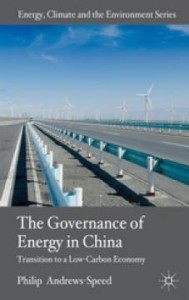The Governance of Energy in China. Transition to a Low-Carbon Economy
 China is both the largest emitter of greenhouse gases in the world and the country with the greatest challenge to constrain the level of its emissions. The way in which energy is governed in China is an important factor driving its rising level of carbon dioxide emissions. … Continue Reading ››
China is both the largest emitter of greenhouse gases in the world and the country with the greatest challenge to constrain the level of its emissions. The way in which energy is governed in China is an important factor driving its rising level of carbon dioxide emissions. … Continue Reading ›› Whither China’s coal demand?
The demand for coal in China is a major concern for coal mining companies and thermal power generators both inside and outside China. Small changes in China’s coal market have large implications for the international market.
China’s Long Road to a Low-Carbon Economy. Presentation in Beijing
On 17th July 2012, Philip gave an after-dinner talk to the Beijing Energy Network on the subject of his report “China’s Long Road to a Low-Carbon Economy. An Institutional Analysis”.
The Global Resource Nexus. Presentations in Beijing
During July, Philip presented the report of the Transatlantic Academy to two different audiences in Beijing.
Tackling the challenges in the South China Sea
The recent events in the South China Sea involving China, the Philippines and Vietnam once again bring this region to the front pages of newspapers in China and around the world. We we can but hope that no minor incident involving fishing vessels, seismic ships or drilling rigs escalates into a military engagement.
Second Policy Brief published by the POLINARES project
China’s push for hydro-electricity highlights challenging contradictions
The recent re-invigoration of China's programme of dam building highlights a number of policy contradictions.
